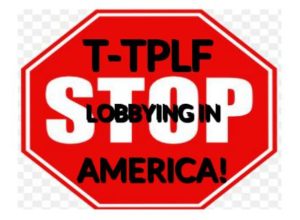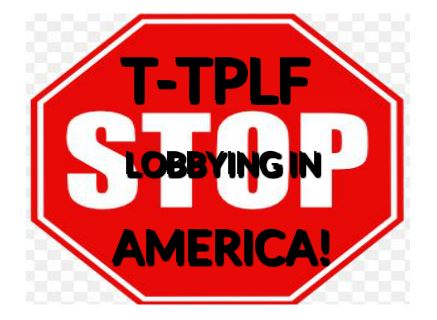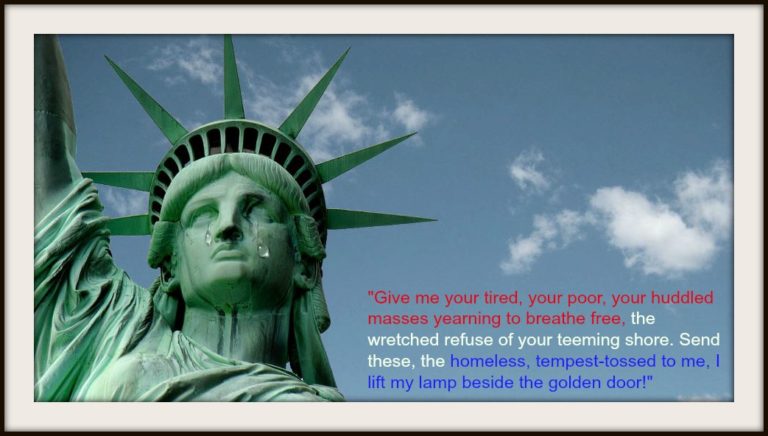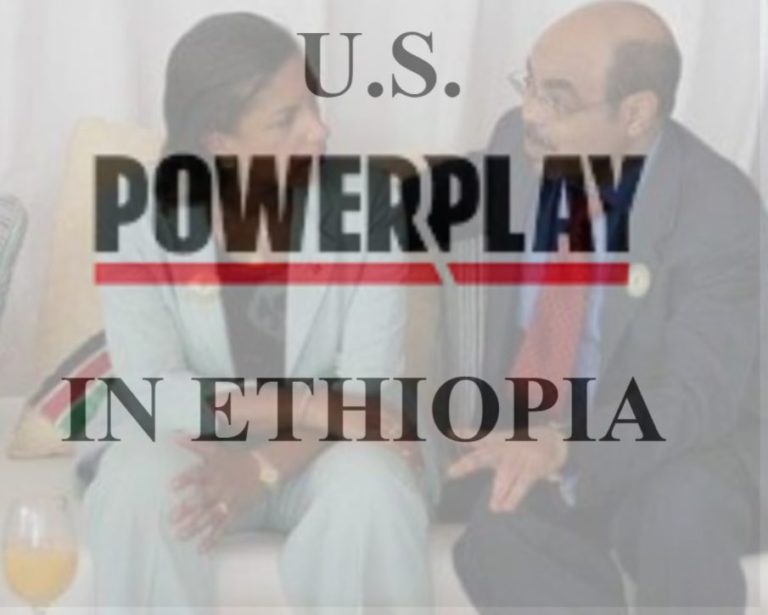Ethiopia: The Power of Grassroots Advocacy Over Paid Lobbying

Author’s Note: This commentary is the third installment in an ongoing series opposing the lobbying efforts of the Praetorian regime in Ethiopia which rules by a declaration of emergency. For years and particularly over the past month, I have strongly argued to the Trump administration to review U.S. foreign aid programs in Ethiopia and Africa. I am heartened by the announcement of the Trump Administration yesterday that there will be “fairly dramatic cuts” in U.S. foreign aid beginning in 2018.
T-TPLF and the power of money
Is the U.S. Government for sale?
Could the U.S. Government be purchased with U.S. aid money given out to help the poor?
The Thugtatorship of the Tigrean People’s Liberation Front (T-TPLF) definitely believes it is. The T-TPLF thinks it can buy the whole kit and caboodle of the U.S. Government today for $2 mills. It has done it before, but could it do it again in the Age of Trump?
Why would the T-TPLF agree to pay SGR Washington D.C. (Lobbying) USD$150,000 per month, for a total of nearly $2 million a year, to lobby members of Congress and the Trump Administration unless it believed it can buy the U.S. Government at cut-rate?
Of course, the big question is: Where the hell did the T-TPLF get the $2 million to blow on a lobbying extravaganza? For the past year, the T-TPLF has been pleading poverty, claiming it has no money to feed the millions of Ethiopians facing famine and starvation and fast running out of foreign exchange reserves.
Before the Obama Administration gave the T-TPLF free access to USAID or more accurately the “U.S. Aid Candy Store” (USA-CS) under the management of Susan Rice and Gayle E. Smith, the T-TPLF splurged on lobbying spending nearly USD$3 million in the span of a single year.
Between April 14, 2008 and October 14, 2009 (including a large payment in December 2007), the T-TPLF spent USD$2,888,235 on lobbying using three top Washington firms:
| Date | Amount | Client | Registrant | |||
| 10/14/2009 | $585,779.52 | Government of Ethiopia | Mark Saylor Company, LLC | |||
| 02/17/2009 | $31,654.13 | Government of Ethiopia | Dewey & LeBoeuf LLP | |||
| 12/11/2008 | $50,000.00 | Government of Ethiopia | DLA Piper US LLP | |||
| 02/01/2008 | $300,000.00 | Government of Ethiopia | Dewey & LeBoeuf LLP | |||
| 01/25/2008 | $28,642.50 | Government of Ethiopia | Dewey & LeBoeuf LLP | |||
| 01/25/2008 | $73,962.30 | Government of Ethiopia | Dewey & LeBoeuf LLP | |||
| 01/11/2008 | $328,040.18 | Government of Ethiopia | Mark Saylor Company, LLC | |||
| 12/26/2007 | $183,307.48 | Government of Ethiopia | Dewey & LeBoeuf LLP | |||
| *04/14/2008 | $1,351,851.25 | Government of Ethiopia | DLA Piper US LLP |
Moving suitcases full of cash to offshore accounts is a staple of the T-TPLF and its hangers on. In April 2016, two Chinese migrant workers found $356,246 in cash at an airport in China and local police returned it to three travelers from Ethiopia.
According to Global Financial Integrity (GFI), “Ethiopia, which has a per-capita GDP of just US$365, lost US$11.7 billion to illicit financial outflows between 2000 and 2009.” The outflow has never stopped and today Ethiopia is not only a failed nation but also a financially bankrupt one.
A simple question to ask is: “Who in Ethiopia has $12 billion to squirrel away in offshore accounts the world over?”
The answer is another question: “Who in Ethiopia has 100 percent control of the “parliament”, the economy, the military, the civil service, the media, and even the internet?
When the T-TPLF is literally smuggling tens of billions out of the country, $2 million is chump change, a drop in the ocean of corruption.
What I find incomprehensible is the fact that T-TPLF today is panhandling the U.S. and the international community for more money to help famine victims and needs USD$948 million while it is squandering $2 million on fat cat lobbyists.
Why should American taxpayers shell out a billion dollars when the T-TPLF has squirreled away 12 billion in offshore accounts? To demand the American taxpayer foot the bill for the T-TPLF’s lobbying extravaganza is not only an outrageous abuse of American generosity but also an insult added to injury.
The audacity of the T-TPLF criminals is not limited to stealing U.S. aid money. They have been committing securities fraud in the U.S. along with who knows what else.
In June 2016, the T-TPLF agreed to pay the American Securities and Exchange Commission USD$6.5 million dollars in “disgorgement” for selling unregistered bonds in the U.S. for a period of years. (Disgorgement is repayment for ripping off some one.) Selling unregistered bonds in the U.S. is a crime under the “Securities Act of 1933”, sec. 20 (b)).
Did the T-TPLF actually pay the $6.5 million in fines to the SEC? Does it have the money to pay the fine?
So, where did the $2 million for lobbying come from?
Did the T-TPLF skim $2 million from U.S. aid and squirrel it away for a rainy lobby day?
Did the T-TPLF dip into its $12 billion kitty in offshore accounts?
Did the T-TPLF get $2 million as a gift from some fat cat?
Did the T-TPLF embezzle tax dollars collected from starving and toiling Ethiopians to feed the mean “K” Street junkyard dogs?
Did the T-TPLF take out a loan? From the Bank of China? The World Bank?
Did the T-TPLF get the money from the down payment on the fire sale of the “Ethiopian Railway Line” or the Ethiopian Shipping & Logistics Services Enterprise?
Or is it earnest money on the soon to be executed sale of Ethiopian Airlines?
I don’t know.
To me, the $2 mills reek of ripped off U.S. aid.
The one irrefutable fact about the T-TPLF is that they believe they can buy anyone and anything to remain in power. It is only a matter of how much, not if they can buy it.
The T-TPLF leaders truly believe they can buy decisive influence in the U.S. Government during the Trump era. They did not spend a red cent during the Obama administration because they had free access to the USA-CS.
The T-TPLF bought and sold tens of thousands Ethiopian Diasporans by promising them “free land” to build houses, “tax holidays” if they invested and easy access to officials so they can get things done without following established rules and regulations. The avaricious Diasporans flocked back and spent their money like drunken sailors making everything expensive for the local people trying to live hand to mouth. Today, many of those same Diasporans who bought the T-TPLF story hook, line and sinker are regretting their decisions and dangle on the hook. Their investments are worth pennies on the dollar. I tell them it is no use crying over spilled milk. They should have heeded my advice, “Buyer beware!” Such are the just desserts of greed and total indifference to the people’s need.
The T-TPLF has bought one group of Diaspora Ethiopians to fight another group of Diasporans by secretly funding often both sides. We know there are T-TPLF agents in every American state reaching out to individuals offering them money and benefits to work behind the scenes stirring trouble and even dividing and destroying church congregations to ensure the churches will not be a base of support for any anti-TPLF movement.
The T-TPLF bought enough influence to stop H.R. 2003 in the Senate although people power got it passed in the U.S. House of Representatives in 2007. Today, the foremost defender of the T-TPLF in the Senate, James Inhofe, says he can guarantee business as usual for the T-TPLF in the Trump Administration. Inhofe once said the late thugmaster Meles Zenawi was his “brother” and “friend”.
The T-TPLF leaders, families, cronies and supporters have bought multi-million dollar homes in the U.S. and operate multi-million dollar businesses. They send their children to American schools and colleges paying vast sums all on government salaries of a few hundred U.S. dollars a month.
Just last week, according to one report, the T-TPLF handed out 657 women 8.790 birr to buy goodwill and at the same time create division among the people of Gonder where an uprising against T-TPLF rule broke out over the past year and continues today in various forms of popular armed and civil resistance.
But money cannot buy legitimacy. Money cannot buy the people.
End of the USA-CS for Africa?
It seems the US Aid Candy Store will finally close.
Yesterday, Mick Mulvaney, the White House Office of Management Budget director, announced the “Trump administration will propose “fairly dramatic” reductions in U.S. foreign aid when it submits its fiscal 2018 budget later this month.
While I, in no way take any credit whatsoever for this move by the Trump Administration, I am encouraged and deeply humbled that that my lone solitary voice against the rape of the American taxpayer by dictators and thugtators was heard in the Trump Administration at the highest levels. It is said that “Even a voice in the wilderness is sometimes heard, and unwilling listeners do, now and then, become converted.” The ironies of life!
People Power v. Money Power
Over the past couple of weeks, I have heard various people express the view that Diasporan Ethiopians cannot fight the T-TPLF’s lobby campaign backed up with a well-funded war chest.
There are those who are ready to raise the white flag of surrender by the mere mention of USD$2 million being handed out to one of the “K” Street Lobbying White Knights in Shining Armor marching towards The Hill or the down Pennsylvania Avenue at The White House. They say the lobby firms are too powerful to fight against. They say, money talks and everything else walks. No money, no voice. No matter what you say, without large amounts of money, nobody will hear you. In Congress. In the White House. In the bureaucracy.
But as Gandhi taught, “Strength does not come from physical capacity. It comes from an indomitable will.” There is nothing stronger in the universe than the will of the people. The will of the people is the true power of the people. Money power is no match to the willpower of the people.
I have been asked by well-intentioned but disbelieving individuals how I could possibly think that Ethiopian Americans who are splintered by ethnicity, religion, language, etc. could expect to win against a powerhouse lobbying firm. They think I am in denial or just naïve in believing Ethiopian American grassroots advocates could come together and make a dent in the solid armor of a “K” Street lobbying firm.
Perhaps I am naïve about the power of money, but I do understand People Power. If we can get the nearly one million Ethiopian Americans and the tens of millions of their friends, neighbors, associates, co-workers, faith-members, classmates and members of their civic, social, cultural, professional political organizations and other associations to join in, we can surely beat the T-TPLF’s power of money.
There is a story about a time in Jericho when the trumpets were sounded and the people gave a loud shout and the wall collapsed.
If we put our voices together and give a loud shout, “No influence peddling in our government by a corrupt and brutal regime!”, we too can collapse the wall of money the T-TPLF is building around the U.S. Congress and the Administration.
The fact of the matter is that Ethiopian Americans are not alone in this fight. We have African American, Hispanic American, Jewish American, Armenian American, Arab American, Greek American, Asian American, …. groups and organizations that could partner with us to achieve our objectives. But we must reach out to these groups and their members on an individual and organizational basis and partner with them. That means we must build coalitions with like-minded groups one brick, one organization, at a time.
We have a lot to learn. That is much to learn from mistakes of the past and the things we did right and learn new skills for effective grassroots advocacy. HR 2003 was a great experience in advocacy. I offer a little “civic education” to those who are not clear about lobbying and grassroots advocacy in the U.S.
Lobbying
Lobbying in the public mind is equated with bribery, influence peddling, corruption and crookedness. Donald Trump’s signature campaign promise was to “drain the swamp”. He said, “If we win on November 8th, we are going to Washington, D.C.—when we win, OK—and we are going to drain the swamp.” He meant that he would eliminate the enormous influence of lobbyists who peddle influence in the U.S. government and the “entire corrupt Washington Establishment” which thrives on campaign contributions of lobbyists and others who do the same thing under different labels, e.g. consultants, experts.
The term “lobbyists” is applied loosely in general public discussions. I am concerned here specifically with paid lobbyists whose principal business is to hire out their services to clients and receive compensation for work they do to persuade legislators and policy makers to act in favor of their client’s business or cause. Lobbyists get paid for persuading politicians to do something to benefit their clients or not do something that could harm their clients or prevent change in the existing state of affairs. For instance, the T-TPLF lobby aims to increase US aid to the regime, defeat legislative efforts in Congress aimed at sanctioning the regime and give them a free pass to the USA-CS.
It is said that the term “lobbyist” first came into use in the mid-seventeenth century when notable Englishmen gathered in the lobby of the House of Commons to share their views with parliamentarians. “Lobbying” has been a fact of political life in America as an activity that is protected by the right to petition government in the First Amendment to the U.S. Constitution in 1791. Lobbying in the 1790s consisted of a few individuals trying to get special favors from Congress. One notable lobby sought to get benefits for veterans of the Continental Army from the newly established Congress. It was not until the decade before the American Civil War that the term “lobby” began to have special significance as gun makers made gifts of firearms to lawmakers to curry goodwill. It was after the Civil War during the Gilded Age (when America grew economically and demographically and corruption and corporate financial shenanigans became prevalent) that lobbying became a full-scale influence-peddling industry.
Lobbying became a serious problem after the Great Depression when foreign governments and businesses tried to influence Congress. In 1938, Congress passed the Foreign Agents Registration Act, requiring foreign governments, businesses and institutions to publicly disclose their relations with American politicians. In 1946, Congress passed the Lobbying Registration Act (repealed in 1995) requiring anyone who spent at least half of their paid time directly lobbying the federal government. In the wake of major corruption investigations and prosecutions in the 1990s involving the infamous and powerful lobbyist Jack Abramoff federal contracts, Congress passed the 1995 Lobbying Disclosure Act defining lobbying activity. In 2007, Obama declared he will not accept lobbying money and Congress passed the Honest Leadership and Open Government Act requiring electronic filing of lobbying disclosure reports and limiting “gifts” to members of Congress from lobbyists. In 2009, Obama banned lobbyists from working at any agency they had lobbied in the last two years.
Despite Congressional and executive efforts to limit the influence of lobbyists, the revolving door functions to recycle former members of Congress, ex-congressional staffers, political appointees and has been declining over the past several years due to stricter laws, rules and regulations. In 2007, there were nearly 15 thousand “lobbyists” compared to 9700 in 2016.
Grassroots Advocacy or People Power
Grassroots advocacy is simply “citizen lobbying”. I use the phrase cautiously since citizen advocates do not engage in advocacy like paid lobbyists for the sole reason of getting obscene hourly rates for compensation. The lobbyist who is paid $150,000 a month for his services cares only about one thing: Making $150,000 a month!
Grassroots advocacy or citizen lobbying differs from paid lobbying in several respects:
1) Grassroots citizen advocacy and mobilization occurs when a group of concerned, motivated and civic-minded individuals come together to organize in support or in opposition to a particular cause(s) or issue(s) that is of interest to them or has the potential to serve a greater common good. There are grassroots groups and organizations advancing environmental, civil liberties and other causes. There are even groups consisting of a “loose-knit conglomerate of exiles, sympathetic members of Congress, and nongovernmental organizations” that focus on a particular country.
2) Unlike paid lobbying which relies on the resources and skills of an elite corps of powerful lawyers, marketing and advertising professionals and “consultants” and “experts” with back-channel connections to politicians, grassroots advocates work to reach out and contact their lawmakers and other government and public officials and urge them to act in support or opposition of their issues and causes.
3) Unlike paid lobbyist who gain access to officials by developing personal relationships with officials and their staffers (and engaging in a variety of other activities including making campaign contributions, using the economic leverage of their clients, running media and advertising campaigns, holding “informational seminars” for officials and wining and dining them at golf resorts to educate them about the issues, and even creating bogus grassroots organizations to supplement and leverage their positions), grassroots advocacy generally relies on word-of-mouth outreach efforts aimed at creating and sustaining a public awareness and mass mobilization effort on issues and problems and mobilizing individual action.
4) Unlike paid lobbyists who aim to bring about results for their clients in the short-term, grassroots advocacy aims to build support to change attitudes, policies and practices over a longer period of time.
5) Grassroots advocacy gives effective voice to ordinary people who do not have millions of dollars to blow on high-powered lobbyists. It offers ordinary folks an opportunity to be heard by their representatives and officials. Ordinary people are able to show their lawmakers how their rights and interests are affected by particular issues. By directly communicating with lawmakers, they convey the raw emotion of their concern for the issues.
A well-organized small grassroots group can often give the million-dollar lobbyists a run for their money.
Each person is a leader in a grassroots citizen advocacy campaign
There are those who (I regret to say “sitting on their derrieres”) pontificate and demand the immediate establishment of a leadership group and organization to do what needs to be done. They seem to believe that an elite group of individuals could manipulate and direct the masses of citizens into taking action in one form or another. To invoke an old Ethiopian saying, “The sky is near to those who sit on their rear ends pointing an index finger”.
The fact of the matter is that citizen advocacy is led by citizens. Every citizen engaged in a grassroots movement is a leader, a vanguard and a pathfinder. In many ways, grassroots movements are leaderless in the traditional sense. They are led by ordinary civically-minded citizens who are not willing to take it anymore. Grassroots advocacy places on each concerned citizens the responsibility to self-educate on the issues, to learn new skills necessary for civic engagement, to seek out and link up with others engaged in grassroots advocacy and develop the courage to stand up and be counted.
We live in a time and place where the means of mass communication have made it easier than ever to learn new things and collaborate with others at the speed of light. It is so much easier today to gather around an issue by using internet resources. Fragmented groups can come together and join up for a common cause. It has never been easier to mobilize hundreds or millions of people through social media, email, internet radio and websites, blogs. It is no longer an absolute necessity to march in the streets every day for an opportunity to be heard by lawmakers and other officials. With a computer keyboard and mouse, millions of supporters can be mobilized for immediate action.
There is no longer an excuse for individual inaction in the fact of the most important issues of the day which will impact generations to come.
Getting involved is a civic duty and obligation
Alexis de Tocqueville, the insightful 19th-century French commentator on “Democracy in America” was the first to discuss the importance of civil society organizations (free association of citizens for social or political purposes) as buffers between citizens and the state. He thought these nongovernmental groups operating in their own interests served to promote democratization and revitalized society. He felt democracy in America had a tendency to promote individualistic lifestyles which makes it fertile ground for the growth of free social and political associations which could revitalize democracy and society at the same time. de Tocqueville also noticed two trends among the Americans he observed. Some of the Americans were civically-minded, creative, courageous, eager and prepared to take initiatives and action to engage the government. Others were timid and not interested in free and independent thought and would just as soon follow the herd and follow the opinion of the majority.
de Tocqueville’s observations are just as applicable to 21st century Ethiopian Americans. The same two trends in de Tocqueville’s America are present today. There are Ethiopian Americans who are eager to step up to the plate and others who want to sit in the bleachers and watch silently from a distance. There may be others who may feel more comfortable living a life of de facto second-class citizenship.
I do not want to sound jingoistic but American citizenship offers great constitutional liberties, rights, privileges and responsibilities. We have the right to free speech and to petition government for grievances. We have the right to vote and to hold our lawmakers and officials accountable for what they do and do not do.
Our elected representatives work for us. They do not work for the T-TPLF or any other foreign governments. The T-TPLF does not pay taxes in America. It is in the enviable position of extracting billions of dollars from the American taxpayer. The T-TPLF does not vote in America. It steals elections in Ethiopia.
For those of us who appreciate the genius of de Tocqueville “Democracy in America”, we know that American citizenship carries with it considerable responsibilities. Those responsibilities are even greater on all those who escaped political persecution from their home countries and emigrated to the U.S. Defending the U.S. Constitution from enemies domestic and foreign is a responsibility, indeed a solemn oath, every naturalized American citizen is required to take and live up to.
The T-TPLF is free to flash its wads of millions of dollars and dangle it before certain American politicians, but it is our job and solemn duty as to make sure T-TPLF’s money power does not crush Ethiopian American people power.
I should like to remind my Ethiopian American readers of an admonition attributed to de Tocqueville: “The American Republic will endure until the day Congress discovers that it can bribe the public with the public’s money.”
In the 21st century, the question shall be whether the American Republic will endure the relentless onslaught of foreign bribe money flowing into Congress and the administration!
To be continued…






